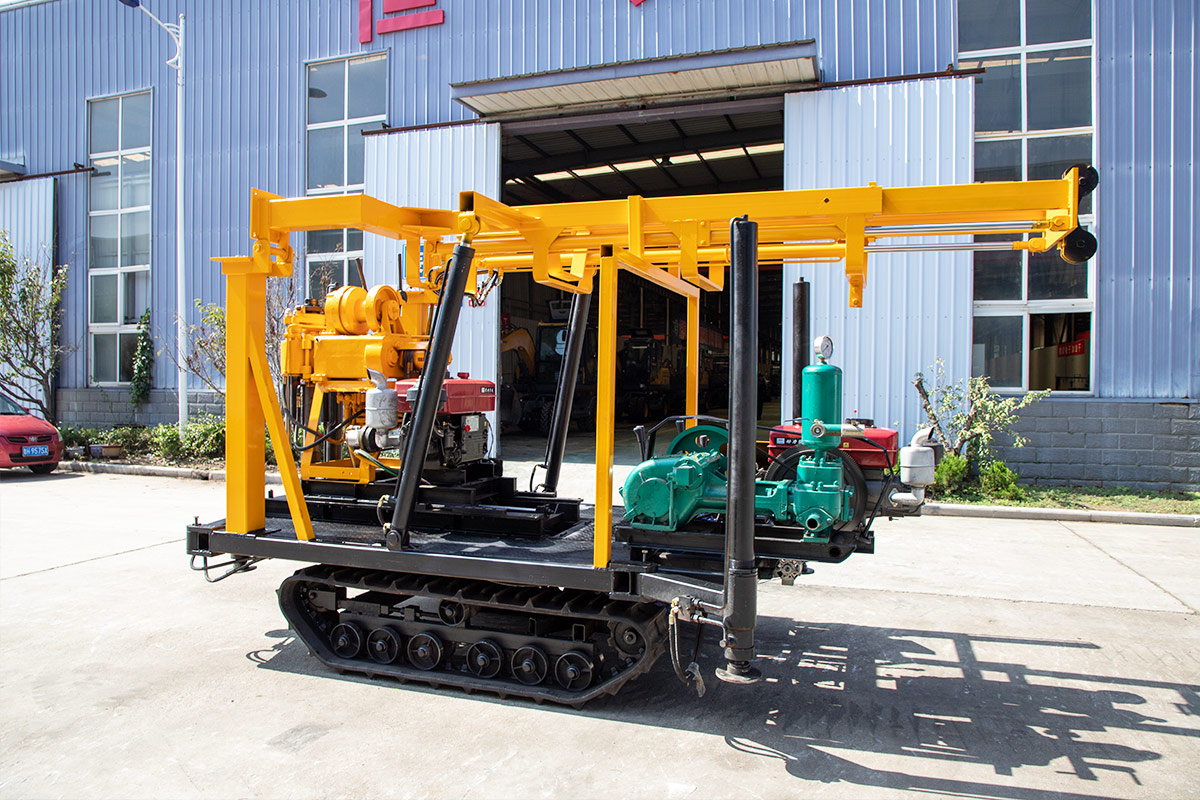
1. After the preparation is completed, connect the drill bit. Operate the chassis gear control handle to make the top gear run, and then engage a suitable high-speed gear to drive the high-power generator to work.
2. Adjust the operation keys and buttons on the panel of the power generation control device so that the rated voltage of the generator is about 400V when it is turned to the "automatic" position (at this time, the engine speed is stable at about 1000 rpm), ready for drilling operations.
3. The operator is in place, and the operator presses the signboard of the circuit control box (as shown in the figure below) to prompt, and turns on the mud pump motor switch and the main drive motor switch to start the mud pump and the main drive.
4. Turn the handle of the transfer case to the marks of "turntable forward" and "winch slowly".
5. Slowly release the brake handle of the main winch, put down the drilling tool and drill.
6. During the drilling process, try to keep the feed evenly. After drilling a drill pipe, do not lift the drill and let the mud circulate in the hole for a few minutes to ensure that the drilling cuttings in the hole are completely returned. Then lift the drill slowly and install the drill pipe.
7. Drilling down again, before the drill bit reaches the bottom of the hole, start the pump to flush, wait for the mud to return to normal from the hole, and then drill.
8. After the drilling is completed, lift the drill and drop the tower, and retract the hydraulic outriggers.
9. Turn the handles of the drilling rig mud pump, transfer case and other components to the neutral position. Switch the chassis gear to separate the top gear, pull the rear drive gear, and exit the drilling station.